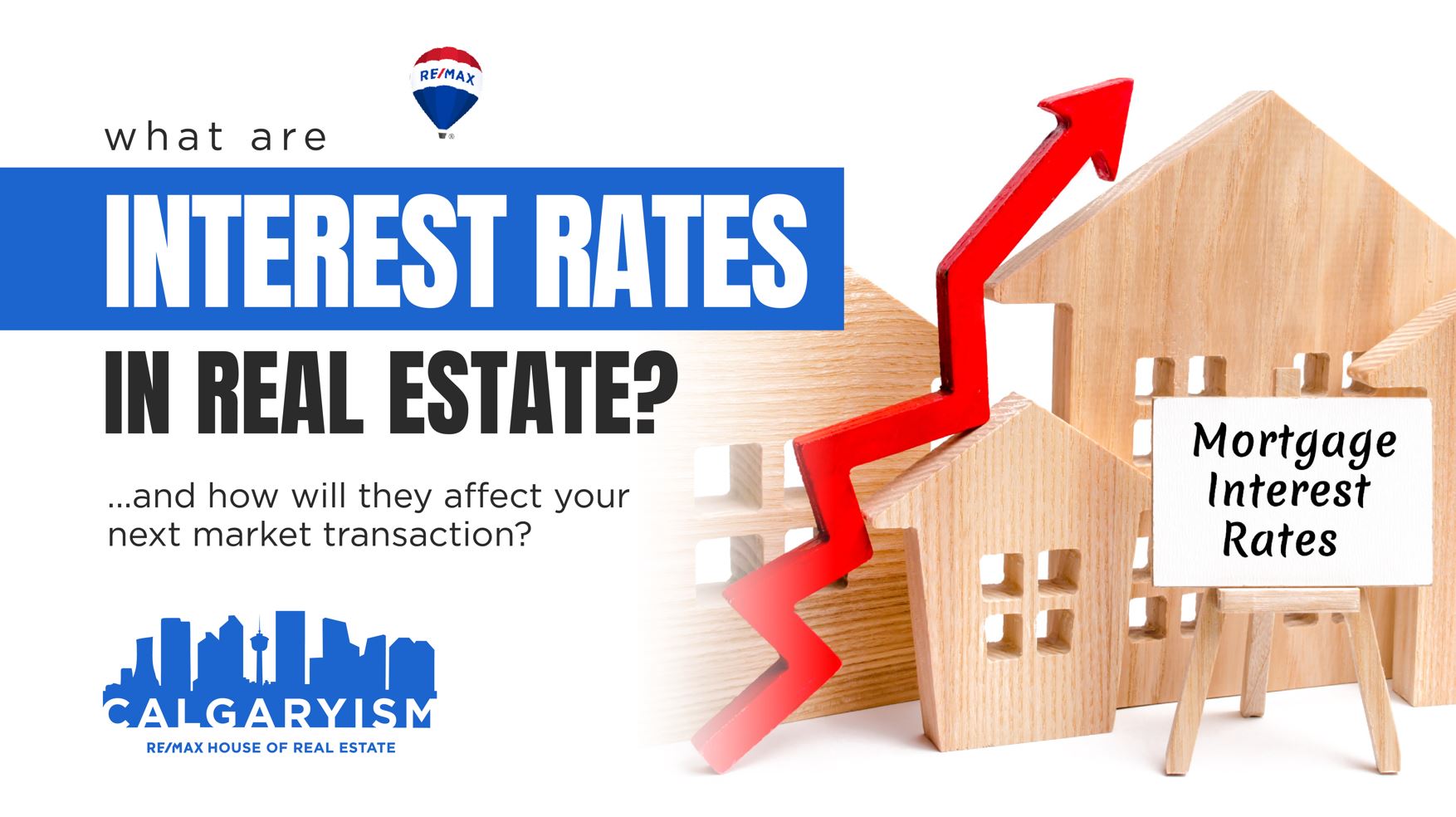Main Content
What are “Interest Rates” in Real Estate? Ask a REALTOR®
What is an “Interest Rate” in Real Estate and How Will it Affect My Next Transaction?
Interest rates in real estate are defined as the rate at which you, a borrower of money, pay interest to a lender. These ‘rates’ are usually given annually, known as the annual percentage rate (APR).
In other words, you are renting an asset (money) like you would a car, and the leasing charge to you by the lender is the interest paid.
What real estate interest rates are is best shown by providing a real-life example.
Let’s say that your friend Amanda was looking for a 4% interest rate on a 30-year fixed mortgage for a home valued at $400,000, then her monthly mortgage payment would be $1,900. However, if she only qualified for a 5% interest rate on the same term for the same property, then her payment would rise to $2,138 a month.
Just a 1% difference in an interest rate over this timeframe can make a huge difference in the overall amount Amanda will pay on her mortgage. For example, using the information above, an additional $238 per month over 30 years equates to $85,680 – that’s a huge amount of money, equivalent to the cost of a brand-new SUV or a hefty down payment on another property.
When a borrower is considered low-risk, they are typically offered lower interest rates by lenders such as a bank or mortgage specialist. On the other hand, homebuyers who are considered high-risk will likely be subject to higher interest rates. Also see:
- The Importance of Mortgage Pre-Approval for Homebuyers
- What Documents Do I Need for Mortgage Pre-Approval?
- 10 Common Mistakes Made by First-Time Homebuyers
Interest Rates & Mortgages

Throughout your amortization period (the time it will take you to repay your mortgage entirely), you may have a handful of different mortgages from a handful of different lenders.
The term of your mortgage is the length you will pay the predetermined interest rates and continue your obligations to the lender. Once that term is over, you can renew your mortgage with your current lender or go with a new one altogether. This is when you will renegotiate interest rates depending on current market conditions.
You can also pay a lump sum off the principal amount still owed on your mortgage without restriction, and if you want, pay off the entire mortgage without any penalty. Many homeowners put extra income down onto their mortgage as this increases their asset base while also reducing the interest they’ll pay over the long term.
If you want to change your interest rates during your agreement term, the lender may charge a large fee.
Fixed Interest Rate Mortgage
A fixed interest rate mortgage has a percentage of interest that is fixed for the life of the mortgage. However, people often renegotiate the terms of their mortgages with lenders.
Adjustable Interest Rate Mortgage
An adjustable interest rate mortgage may have interest that changes month-to-month, every few months, or per annum, depending on the terms of the mortgage. Interest rates in these types of mortgages move up or down in correlation with economic conditions.
How Interest Rates Affect Home Sellers

Rising interest rates don’t just affect homebuyers, but also sellers.
For example, if John wants to sell his house for $600,000, he is more than welcome to. However, higher interest rates mean potential buyers like Amanda may face additional financial hurdles to overcome; she may no longer be approved for a $600,000 mortgage, but rather one that is $550,000 due to the higher interest she will have to pay over a 30-year term.
In other words, the overall accessibility of John’s house has dropped in a residential market with high-interest rates.
Home sellers must do their due diligence when selling in a high-interest-rate market. That typically starts off with hiring the right real estate agent and REALTOR® who knows how to market your home accordingly, to the right eyes.
Canada’s Mortgage Stress Test
Canadian homebuyers must also contend with a stress test based on the latest government regulations. To pass the stress test, you must be able to afford your mortgage payments if interest rates increase to the ‘qualifying rate.’
If your mortgage is uninsured (if you made a down payment of 20% or higher), then the qualifying rate is the higher of:
- The current benchmark rate (now 5.25%)
- Your current or target interest rate plus 2%
If you have an insured mortgage (you paid less than 20% of the purchase price as a down payment), then the qualifying rate is the higher of:
- The current benchmark rate (now 5.25%), and
- Your current or target interest rate plus 2%
Find the Lowest Interest Rate
It is ALWAYS necessary to bargain for the absolute best interest rates on your mortgage as it can add up to big dollars over the long term.
As an experienced team of REMAX real estate professionals and REALTORS® in Calgary, we can refer you to mortgage specialists we work with closely to help you get the best rates possible!
Calgary Home Buyer & Seller Tips
Required fields are marked*
- Airdrie
- Alberta
- Arts and Culture
- Blog
- Buying Tips
- Calgary
- Calgary Activities and Events
- Calgary Communities
- Calgary Condo Guide
- Calgary Infill Homes
- Calgary Luxury Homes
- Calgary New Condo Guide
- Calgary New Homes
- Calgary Real Estate Statistics
- Calgary Restaurants
- Calgary Townhomes
- Canada
- Condo Building Review
- Condos in Calgary
- Featured Blog Posts
- Featured Blogs
- First Time Home Buyers Guide
- Listings
- Moving to Calgary
- New Condo Projects
- Oil and Gas
- Selling Tips
- Slider
- Testimonials
- The Best in Calgary
- Uncategorized
- Video Testimonials
- Contact Us
- Search MLS®
- Sellers’ Guide
- Buyers’ Guide
- About Cody & Jordan
- Blog
- Testimonials
- Downtown Calgary
- SW Calgary
- SE Calgary
- NE Calgary
- NW Calgary
- Calgary Condos
- Calgary Townhomes
- Calgary Infills
- Calgary Luxury Homes
- New Calgary Homes
- New Calgary Condos
- Acreages for Sale
- Bungalows for Sale
- Duplexes for Sale





